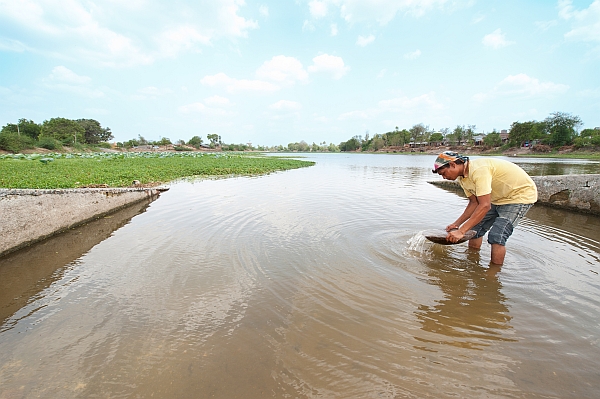Pioneering studies will help policymakers tackle the big issues
IWMI scientists have begun work on two pioneering regional assessments for the Intergovernmental Science-Policy Platform on Biodiversity and Ecosystem Services (IPBES).
The work aims to catalogue the state of the biodiversity and ecosystems, the services they provide and the challenges they face.
Laos Office Head Sonali Senaratna Sellamuttu will co-chair the Asia and the Pacific Assessment, while Southern Africa Office Head Chris Dickens will be a lead author on the African Regional Assessment.

The studies will complement assessments of the Americas, Europe and Central Asia, and will contribute to a comprehensive global assessment due in late 2019.
They will provide evidence to support policymakers’ handling of issues relating to sustainable development and conservation worldwide.
Established in 2012, IPBES is an independent body open to all members of the United Nations. It aims to become the leading scientific body for assessing the state of the planet’s biodiversity, ecosystems and the essential services they provide to society.
In an attempt to emulate the global authority attained by the Intergovernmental Panel on Climate Change (IPCC), IPBES has been structured along similar lines. It will draw on expertise from multiple disciplines, from scientists, governments, and academic organizations, as well as indigenous people and local communities.
“This is a great opportunity to be involved in the most comprehensive effort to date to document the biodiversity and ecosystem services upon which we all depend,” said Sellamuttu.
“It also highlights growing recognition of the need for the holistic, systemic approach to land and water use that organizations like IWMI have been calling for, for many years.”
“It’s very encouraging to see these issues given such high priority at the international level and even more so to be a part of this,” said Dickens. “This will not only help us bring more research and knowledge to policymakers, but should transform the way the world thinks about our relationship to biodiversity and ecosystems.”
Several scientists involved in the IWMI-led CGIAR Research Program on Water, Land and Ecosystems (WLE) will also be involved in the following assessments:
- Fred Kizito (CIAT); Africa Assessment
- Fabrice DeClerck (Bioversity International); Africa Assessment
- Natalia Estrada Carmona (Bioversity International); Americas Assessment
- Ephraim Nkonya (IFPRI); sub-regional assessment of Land Degradation and Restoration
(a) How do biodiversity and ecosystem functions and services contribute to the economy, livelihoods, food security, and good quality of life in the regions, and what are the interdependences among them?
(b) What are the status, trends and potential future dynamics of biodiversity, ecosystem functions and ecosystem services that affect their contribution to the economy, livelihoods and well-being in the regions?
(c) What are the pressures driving the change in the status and trends of biodiversity, ecosystem functions, ecosystem services and good quality of life in the regions?
(d) What are the actual and potential impacts of various policies and interventions on the contribution of biodiversity, ecosystem functions and ecosystem services to the sustainability of the economy, livelihoods, food security and good quality of life in the regions?
(e) What gaps in knowledge need to be addressed in order to better understand and assess drivers, impacts and responses of biodiversity, ecosystem functions and services at the regional level?

